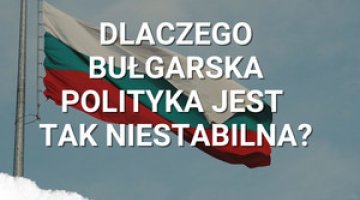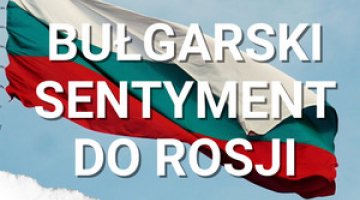Analyses
Bulgaria: the centre right has won the election
The centre-right Citizens for European Development of Bulgaria (GERB) of Boyko Borisov won the early parliamentary election held on 26th March. The party garnered 33% of the vote. The following parties also secured seats in parliament: the Bulgarian Socialist Party (BSP) with 27% of the vote; a coalition of three nationalist and far-right parties, United Patriots (OP) with 9%; the Movement for Rights and Freedoms (DPS), which mainly represents the Turkish minority, with 9%; and Volya, a party founded by a local businessman, which just passed the election threshold of 4%.
Commentary
- GERB, which for the fourth consecutive time came first in the parliamentary election, proved that it remains the main force on the Bulgarian political scene. The popularity of the party stems from the political talents of its undisputed leader Boyko Borisov who has been building his image of a ‘good caretaker’ and a ‘tough sheriff’ for years. Borisov has created a coherent and disciplined centre-right party, able to flexibly correct its political platform. Furthermore, GERB skilfully presents itself to Bulgarian voters as the guarantor of security and reconciles their various expectations regarding foreign policy. On the one hand, the party works closely with the EU’s largest countries (e.g. approving the system of migration quotas). On the other hand it avoids confrontational rhetoric towards Russia or Turkey.
- The election confirmed the ongoing process of the reconstruction of the position of the BSP since the party secured nearly double the level of support as in the 2014 election. This may be attributed to the change in the party’s leadership and the victory of Rumen Radev, whom they backed, in the presidential election in November 2016 (which led to the snap parliamentary election). The fragmentation of the Turkish minority voters is another important shift on Bulgaria’s political scene. DOST, a new party which is supported by Ankara and stresses the need for closer co-operation with Turkey, failed to enter parliament but with 3% of the vote it contributed to a fall in support for DPS. In the context of Ankara’s backing for DOST, tensions between Bulgaria and Turkey appeared (e.g. the Bulgarian Ministry of Foreign Affairs summoned the Turkish ambassador and asked him for an explanation). The Bulgarian-Turkish dispute was particularly emphasised by the United Patriots. However, despite its radical rhetoric, it did not lead to increased support for the coalition in this year’s election in comparison with 2014.
- The establishment of a GERB government led by Borisov, supported by OP and possibly Volya, seems the most likely scenario. Borisov is facing a dilemma whether to invite OP and Volya to join the government or to form a minority government with the agreement of both parties to support it in parliament. Regardless of the formula he chooses the future government will not be stable because the strongly Eurosceptic, anti-Turkey and often xenophobic rhetoric and platform of OP seem incompatible with the moderate GERB. Personal animosities between the three leaders of OP will also present a challenge to the government. Co-operation with OP will be a burden for GERB’s reputation and will expose the government to friction with Turkey. It will not, though, have a fundamental impact on Bulgaria’s foreign policy.




